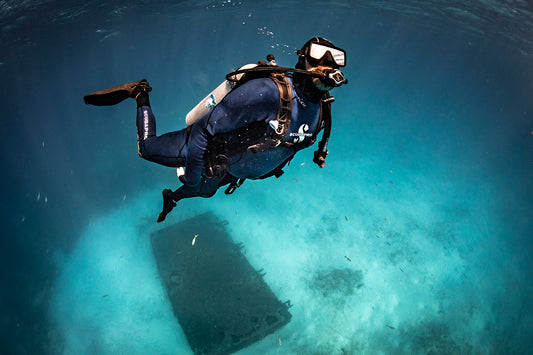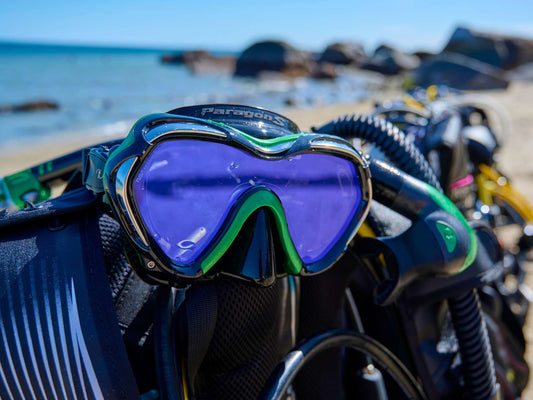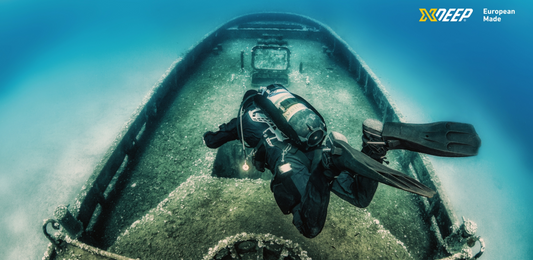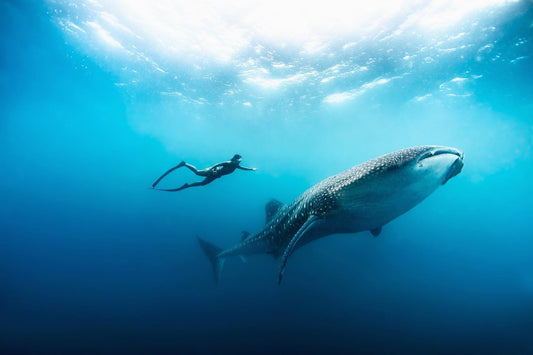
People always ask those who scuba-dive, how deep they went. Scuba divers don't go really deep. In fact we hardly penetrate to any depth at all. Those that do put their heads under the water get an insight into a world that most are unaware of.
Most marine life congregates in and around the first two hundred metres of depth, close to the shore and around both natural and un-natural structures. The majority of it can be found within the first 30 or 40 metres from the surface, and it all awaits you!
Coral reefs and rocks form natural habitats that afford protection from larger predators. Modern day wrecks may be made of steel but they perform the same sort of function as far as the marine animals are concerned. They too become a point of focus for all manner of fishes and other marine organisms.
The next question that people ask divers is if they ever found any treasure. Older vessels that have been turned into shipwrecks either by the fate of incompetent seamanship, weather, or war were often fitted out with a lot of marine-grade brass-work. Some divers make it a hobby to liberate this non-ferrous metal and end up with garden shed full of old brass portholes, and other fittings. It's only dreamers who think they'll find the captain's safe full of gold bars! However, it is something of an experience to visit a ship that lies in its watery grave and, thanks to two World Wars and some gross errors of navigation, the coastlines of the world are littered with shipwrecks.
What about the sharks? Those who get to know the world underwater get a different and truer perspective on what the animals in it are all about. The media might like to portray them as denizens of the deep, voracious and undiscerning predators, but few of the much maligned and misrepresented bigger animals that inhabit the seas are like that. Many divers actually spend large amounts of money travelling to places where they can be sure to get close to the larger and more spectacular animals like sharks and manta rays.
Finally there's the fantastic joy of simply being underwater, weightless in a world where one can travel up or down at a whim. Many people with mobility disabilities have taken to scuba diving simply because it frees them from the constraints of gravity. It's the nearest thing to flying a man can get!



